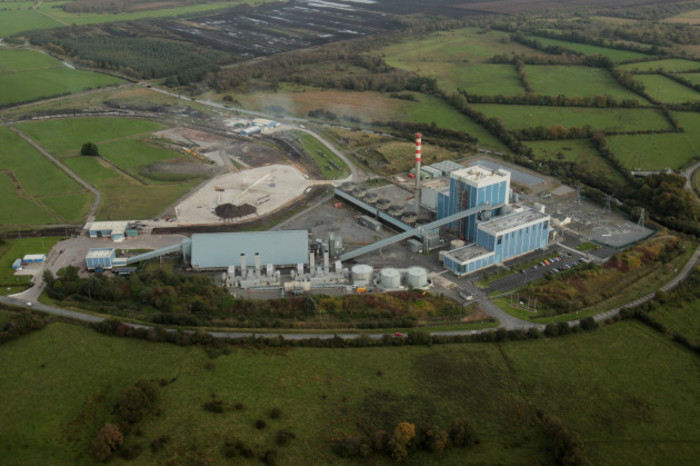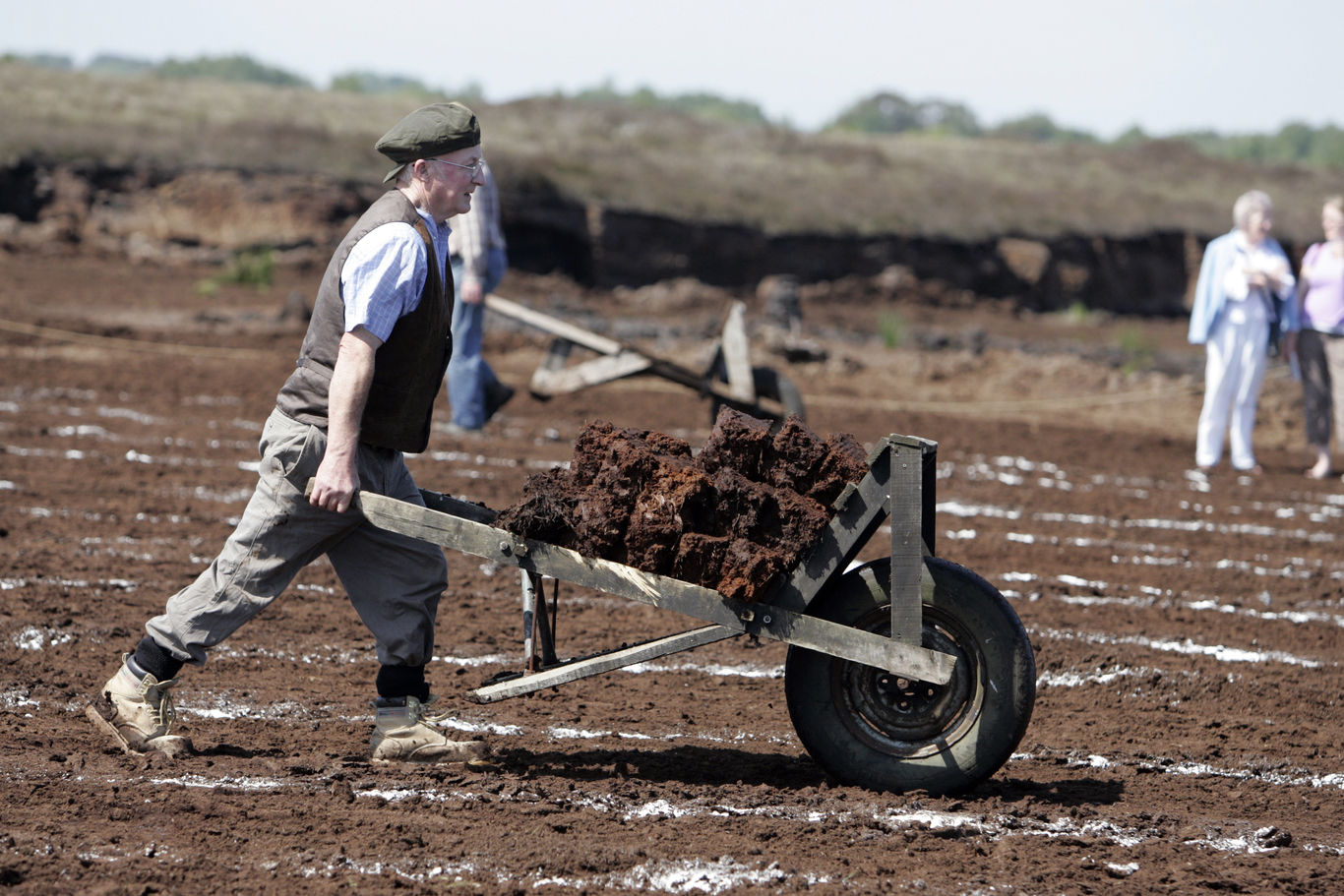Bord na Móna has set aside millions of euro to shut power stations as it turns away from peat
Profits at the semi-state plunged after it wrote down the value of two Offaly plants.
BORD NA MÓNA saw its profits slide last year as it set aside millions of euro to pay for the decommissioning of old power plants.
According to its annual report, published yesterday, the semi-state company made a full-year profit of €17.3 million in the 12 months to the end of March 2016.
That was about half of what it reported the year before, when it made a €35 million profit.
The fall in profits was due in large part to a significant write-down of the value of two thermal power stations in Edenderry. Bord na Móna said that this was due to lower forecast electricity prices.
The firm noted that electrical sales by the Edenderry power plant fell by €4.7 million in the 2016 financial year “due to a planned extended outage and lower prices for electricity”. The plant, located near Edenderry, Co Offaly, employs about 180 people.
Uncertainty over Edenderry
Bord na Móna, which handles the state’s peat harvesting, said that the plant is no longer able to take advantage of subsidies from the Public Service Obligation levy as of December 2015, which hit earnings.
In a statement published with the annual report, the group’s chairman John Horgan said that there is “considerable uncertainty existed on the extension of planning permission for the Edenderry power plant”.
“The plant is currently operating under a temporary High Court stay until October 2016, pending a decision by An Bord Pleanála in respect of our application to extend planning permission for the plant until 2030,” he said.
The company made a provision of €4.2 million to support the cost of power stations and wind farms. It did not specify which operations are likely to close. The firm also set aside about €4 million in 2015.
 An aerial view of Bord na Mona's Edenderry plant
An aerial view of Bord na Mona's Edenderry plant
Bord na Móna said that a further €1.1 million was set aside for plant closures “based on the present value of the current estimate of the costs of closure of briquette and horticulture compost plants at the end of their useful economic lives”.
Move to renewables
The firm said that 60,000 hectares of peatlands now being used to provide energy peat to three power stations will transition to new uses by 2030.
After 2030, Bord na Móna will no longer harvest peat for energy and will instead focus on energy production from renewables, such as biomass or wind.
Overall, the company had revenues of €433 million for the 2016 financial year, up from €407 million in 2015.
However, cost of sales rose in line with the increased revenues, leaving a gross profit of €137 million, nearly identical to the year before.
Basic administrative expenses rose slightly, from €49 million to €54 million, however the aforementioned write-down, as well as €7.3 million in restructuring costs, was the biggest drag on the company’s profitability. The company also paid out a €10 million dividend to the state.






